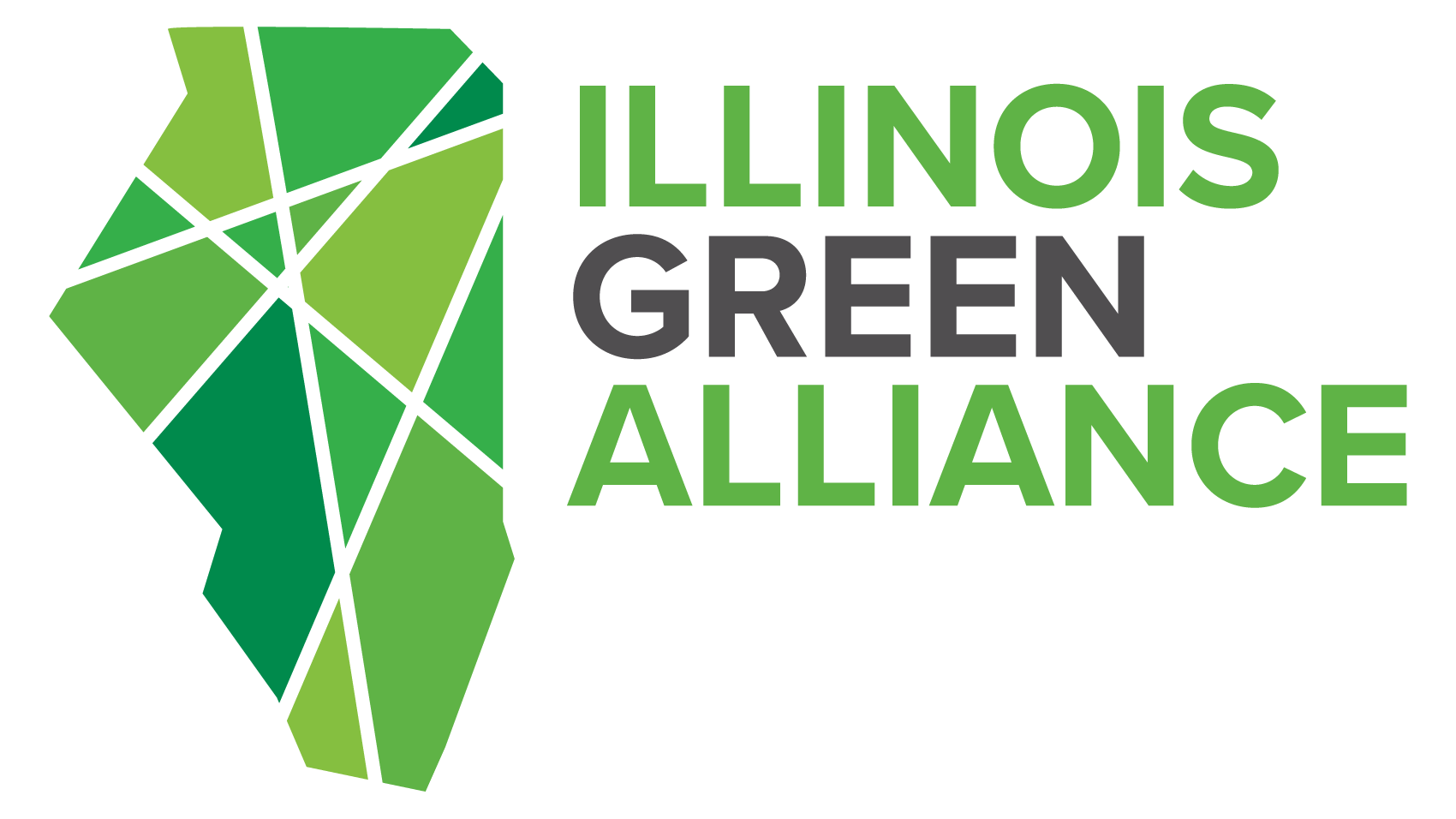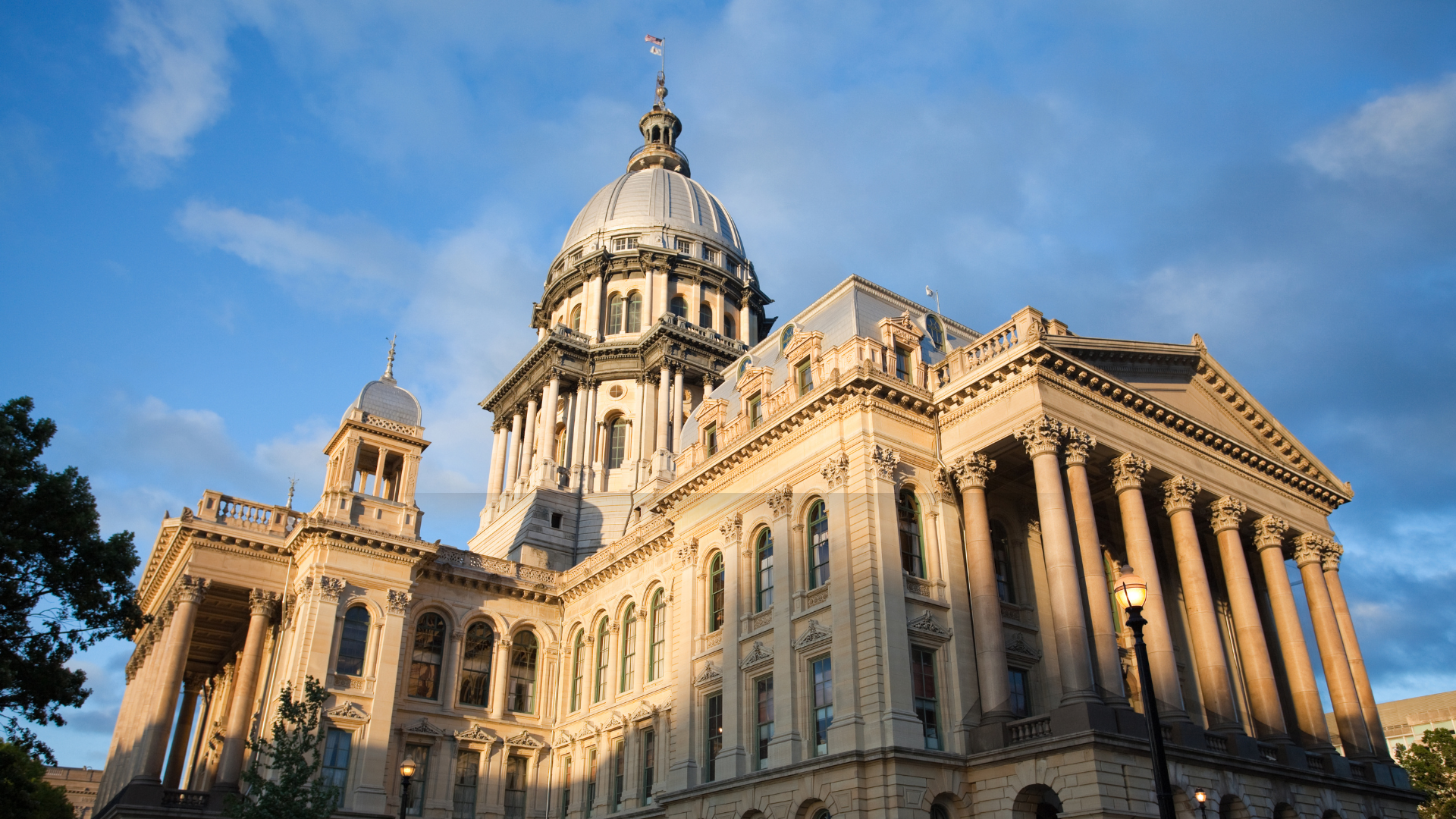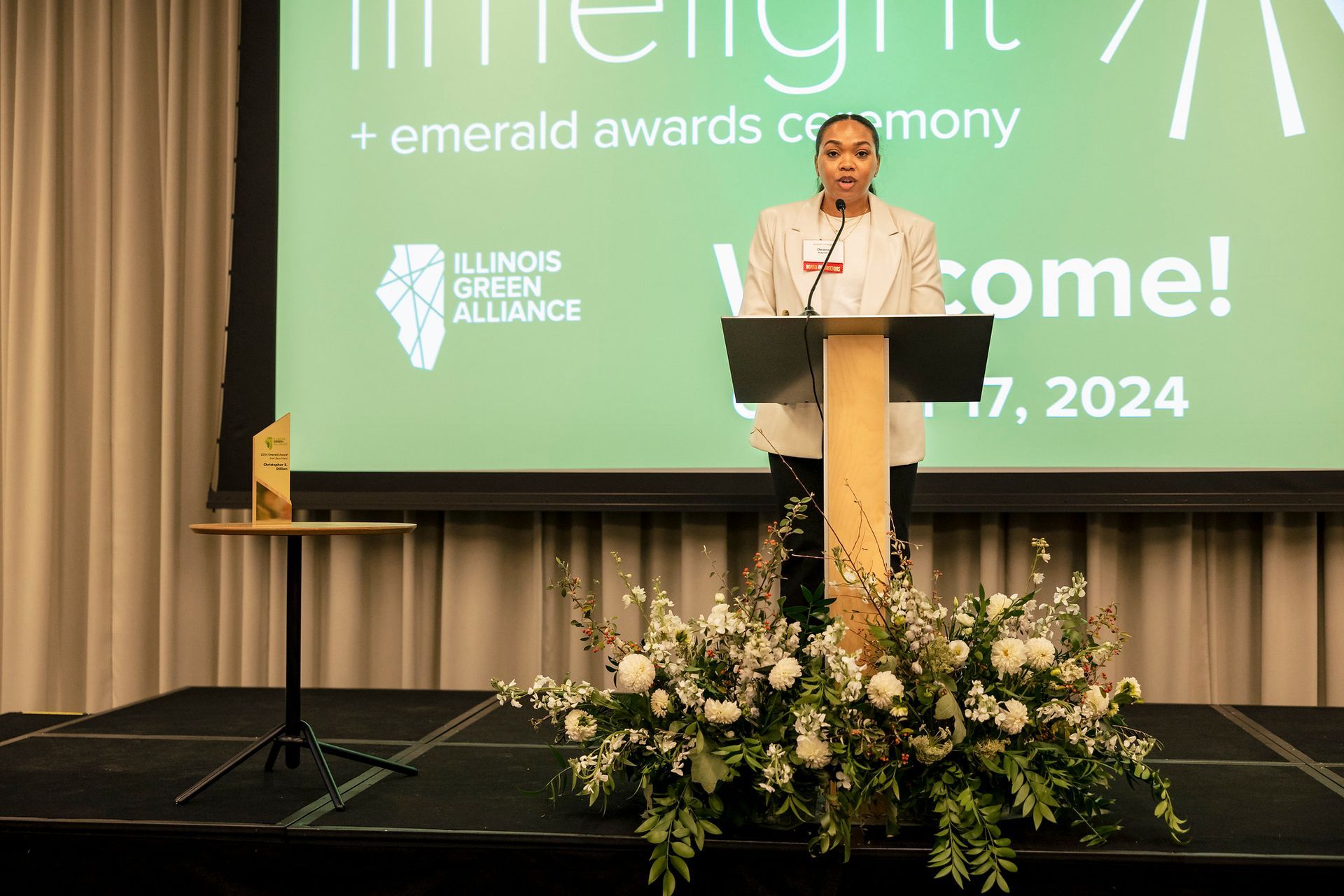Evanston Passes First Building Performance Standard in Illinois
Building Professionals Key to Passing Healthy Buildings Ordinance
Evanston – On March 10, following weeks of input from residents, environmental advocates, and building industry professionals, Evanston City Council passed the
Healthy Buildings Ordinance, a major initiative to green and modernize large buildings in the city. Green building professionals in particular were instrumental in lending their unique voices to the discussion with policymakers to help pass the initiative.
The Healthy Buildings Ordinance directs the city to develop Building Performance Standards, a policy that sets energy reduction targets for large buildings. Greening the built environment is a key climate goal for Evanston — over 80% of the city’s emissions stem from the building sector and 50% come from large buildings.
To help educate council members on the policy, Illinois Green Alliance members weighed in to share their experience and support for the Healthy Buildings Ordinance. The ordinance takes aim at emissions from Evanston’s large buildings specifically. Beginning in 2031 and continuing every 5 years until, commercial buildings over 20,000 sq.
ft. and residential buildings over 50,000 sq.
ft. will meet new performance standards. Around 500 buildings in the city will be covered by this policy.
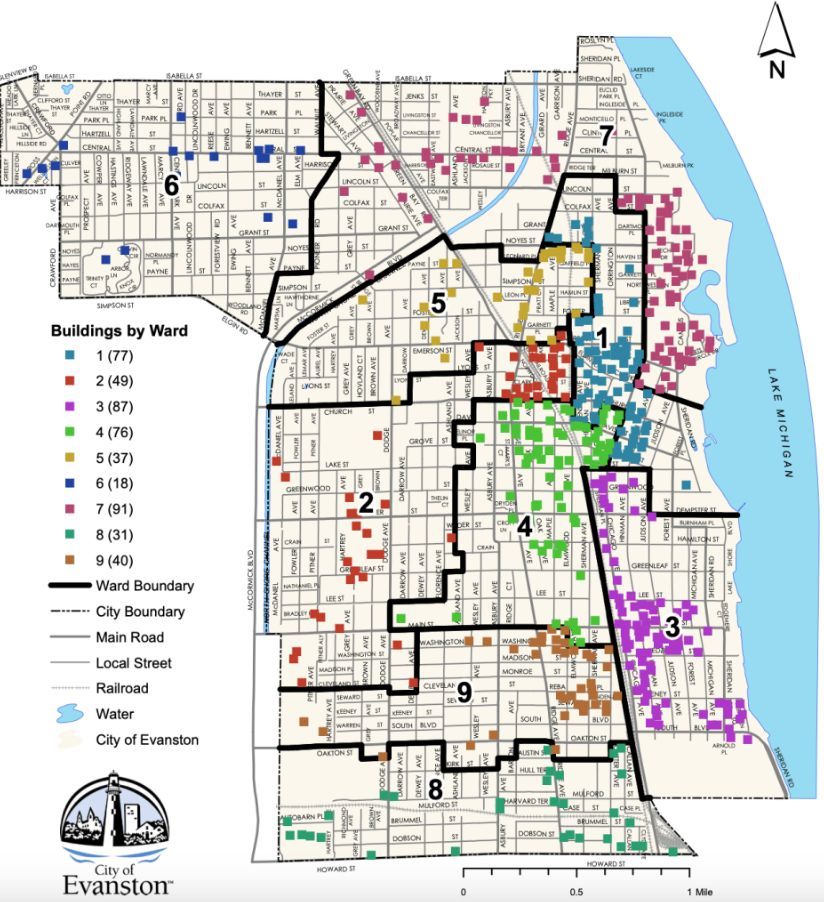
Moving forward, a committee of expert stakeholders will develop these standards and alternative compliance paths to ensure that the policy is flexible. A separate committee will explore how to equitably implement it. Last year, Evanston received a $10 million Department of Energy grant to support this policy’s development and implementation. Building owners in the city can also draw on free resources like the
Building Energy Resource Hub and ComEd Energy Programs to support efficiency projects.
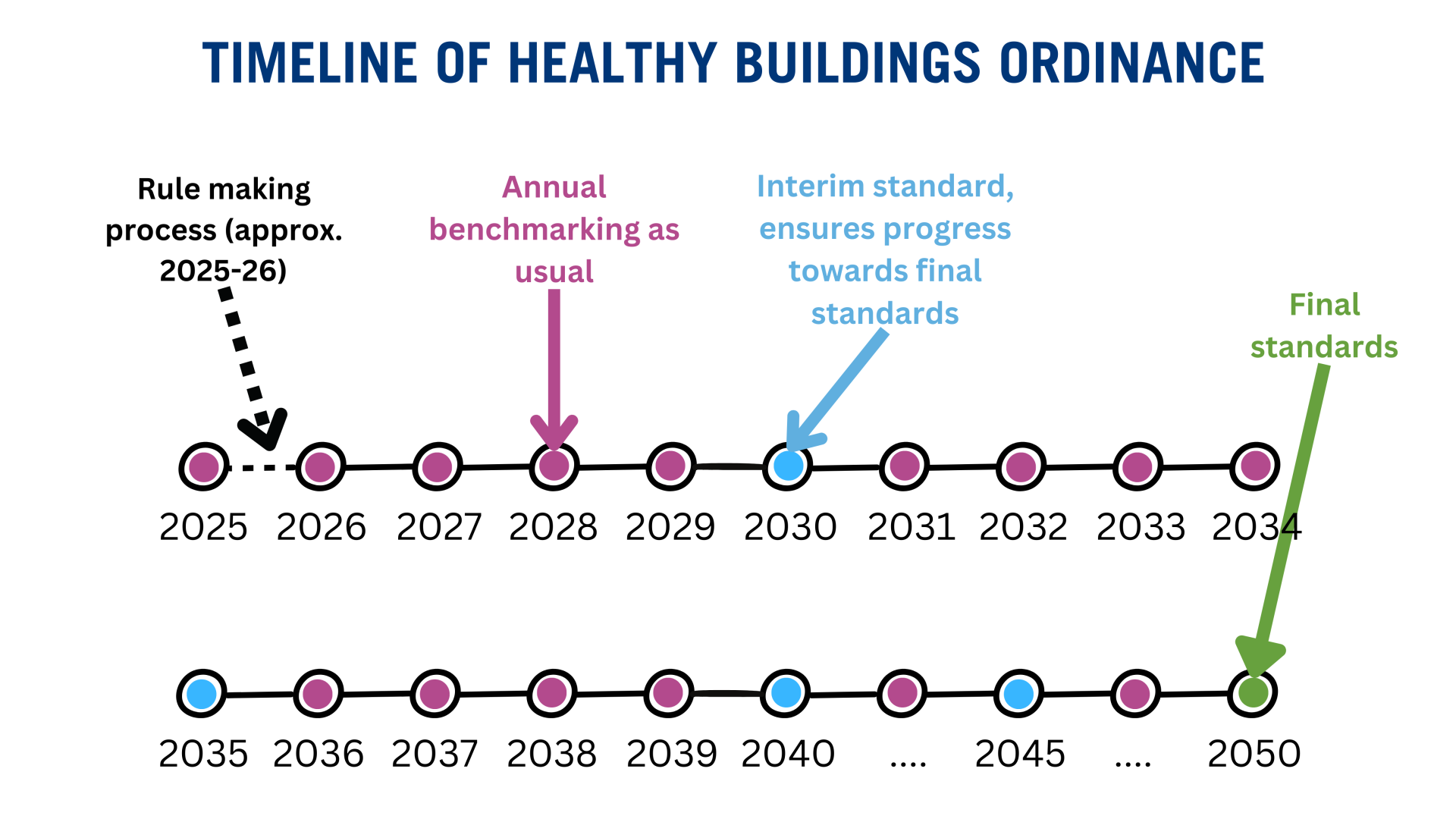
“The Healthy Buildings Ordinance is not only a first for Illinois, it is an important step towards our vision to decarbonize every building in Illinois. Forward-thinking policies like this help ensure the health and resiliency of our communities and help scale the building technologies and design practices our members are helping advance every day.”
Brian Imus, Executive Director, Illinois Green Alliance
Evanston joins Boston, Seattle, Denver, Washington D.C., and others who have adopted similar policies and is the second in the Midwest after St. Louis to do so. Last month, the city also passed another first-of-its-kind in Illinois clean building initiative—adopting the Stretch Energy codes.
Illinois Green Alliance congratulates the City of Evanston, Mayor Biss, city council members, city staff, and all others responsible for this incredible achievement. We look forward to offering our support in implementing the ordinance and hope other cities across the state and region follow your leadership by passing similar policies.
Get news and advocacy alerts in your email! Sign up for our new policy newsletter!
The new Illinois Green Policy Newsletter will bring this monthly update, feature stories and timely advocacy action alerts directly to your inbox. Sign up to stay up to date on the latest local sustainability policy news and the ways you as a building professional can use your expertise make a difference.
